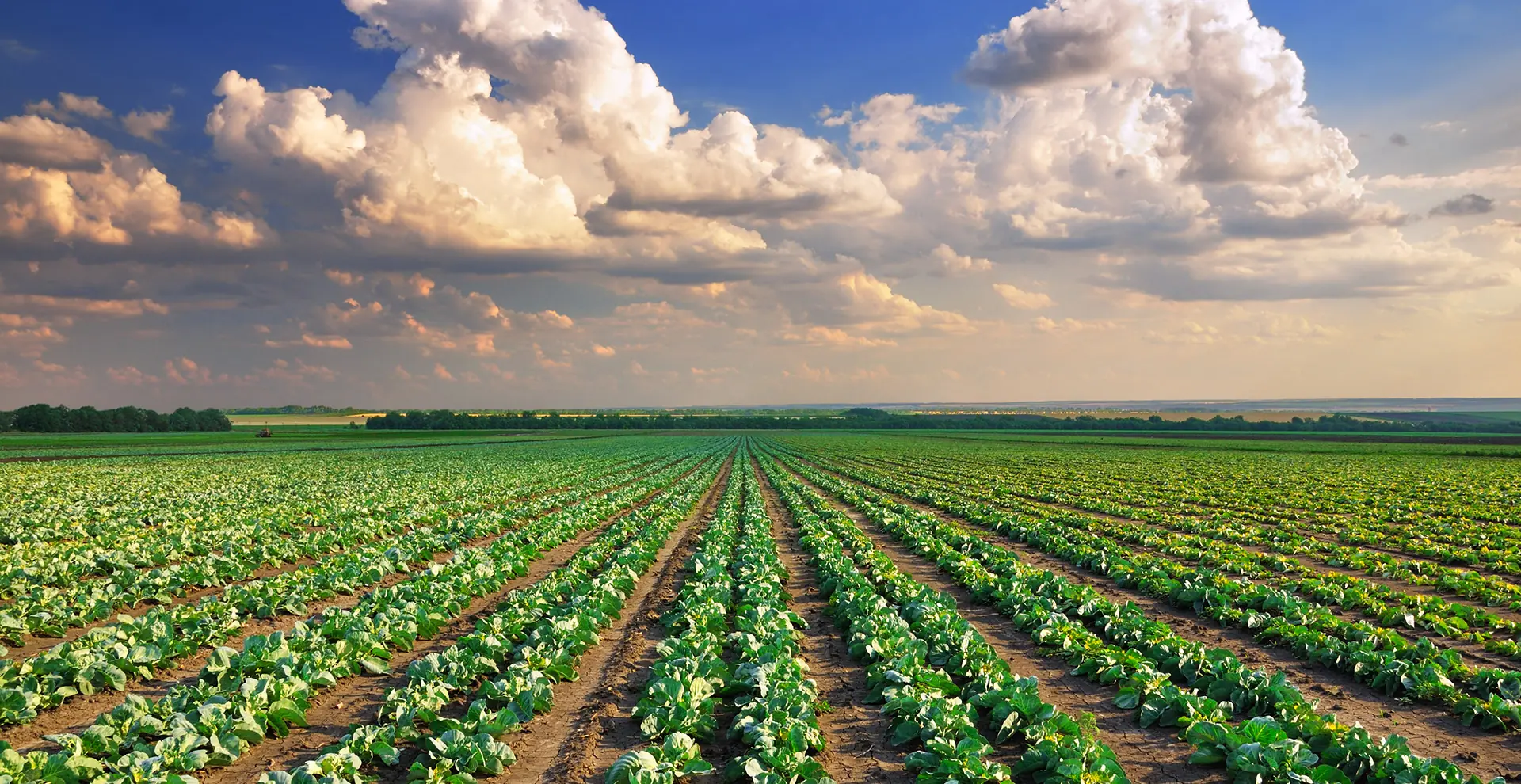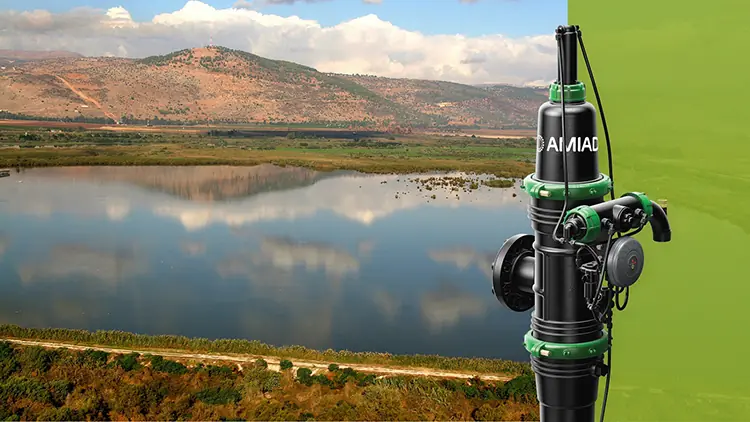To meet the urgent issue of producing more food without using more water, water management must undergo a radical change. Water use in agriculture must be optimized due to the world’s expanding population and rising demand for agricultural products. Adopting innovative irrigation methods like drip and precision farming, which efficiently target the delivery of water to plants, is necessary to achieve this transition. Applying cutting-edge technologies, such remote monitoring and soil moisture sensors, enables accurate watering according to the needs of plants in real time. Reducing water waste and improving soil health are further benefits of adopting sustainable farming techniques. Overall, integrating AG water solutions into the use of technology, along with adopting sustainable practices and water-efficient policies, is the key to conserving this valuable resource and sustainably satisfying the world’s expanding food requirements.
Common AG Water Uses
Common AG water uses include a variety of essential applications within farming operations. each playing an important role in supporting agricultural productivity and ensuring the well-being of both crops and livestock.
Wastewater treatment for agricultural farms and ranches
Wastewater treatment involves cleaning, recycling and reusing wastewater produced on agricultural farms and ranches. This eco- friendly approach contributes to sustainable farming practices by minimizing water waste and ensures that high-quality water is used, promoting healthier crops and livestock.
Livestock drinking water filtration
Livestock drinking water Filtration is an essential procedure for maintaining the health and welfare of animals. Specialized filtration systems are required to provide clean and safe drinking water for livestock to prevent the ingestion of contaminants and pathogens, and to promote maximum growth and productivity.
Washdown of livestock buildings
Washing down livestock buildings is the essential step in disinfecting and cleaning the facilities used to house animals. Washdown helps maintain hygiene and control the spread of disease, and ensures the welfare of the livestock.
Washing water for fruits and vegetables
Using clean, treated water to wash fruits and vegetables in food processing filtration is an essential step in food safety, as it eliminates impurities, pesticides, and residues from fresh produce. This process ensures that fruits and vegetables are safe for consumption and meet quality standards.
How AG Water Relates to Food Security
The challenges associated with food security are worsened by interlinked factors such as climate change, inadequate water management, and unsustainable farming practices. Drastic weather events, such as droughts and floods, can be caused by rising temperatures and unpredictable weather patterns due to climate change. These occurrences can disrupt agricultural cycles and reduce crop yields. The issues are made worse by inadequate water management, since ineffective irrigation techniques and excessive water resource extraction put a further strain on the already scarce supplies. In addition, unsustainable farming practices, such as monoculture and excessive pesticide use lead to degraded soil quality and diminished biodiversity, and compromise long-term food production.
Comprehensive solutions are needed to address these challenges, such as adopting climate-resilient farming methods, better management of water resources, and encouraging and promoting sustainable agricultural practices. By lessening the impacts of climate change, maximizing water efficiency, and nurturing environmentally responsible farming, we can contribute to improving global food security and guaranteeing a more sustainable future.
Data source: Joseph Poore and Thomas Nemecek (2018). – Learn more about this data
OurWorldInData.org/environmental-impacts-of-food | CC BY
Key Considerations in Livestock Operations
A variety of critical factors are taken into consideration in livestock operations to guarantee the welfare of the animals, sustainable output, and compliance with regulations. Among these factors are:
- Animal Health and Welfare: Providing ethical treatment and improving animal health, sufficient nourishment, veterinary care, and comfortable living conditions.
- Environmental Impact: Reducing emissions and waste to lessen environmental impact and the ecological footprint.
- Feed Management: Managing feed supplies efficiently to optimize nutrition, reduce wastage, and manage expenses.
- Disease Prevention: Putting biosecurity measures in place to prevent disease outbreaks and safeguard human and livestock health.
- Management: Making sure animals have access to safe and clean drinking water to maintain their good health and wellbeing.
- Breeding and Genetics: Selecting and breeding animals for desired traits to improve productivity and quality.
- Regulatory Compliance: Adhering to local, national, and international regulations that control livestock production, such as those pertaining to the environment and animal welfare (regulations vary worldwide).
- Sustainability: Putting into practice sustainable methods to cut down on waste, reduce resource consumption, and encourage long-term viability.
- Technology Adoption: Using data and technology, such as automated feeding systems and monitoring tools, to improve management.
- Labor Management: Ensuring worker safety, farm efficiency, and animal care through appropriate training and management of agricultural labor.
For livestock operations to be both successful and ethical, they must balance these factors in order to support both environmental sustainability and food security.
Washing Water for Fruits and Vegetables – Key Considerations
Important factors to take into account for washing water used to process fruits and vegetables. Here are a few examples:
- Water Quality: Ensuring that the washing water is clean, free from contaminants, and meets safety standards to prevent foodborne illnesses.
- Disinfection: Implementing proper disinfection procedures to reduce the risk of microbial contamination and maintain product safety.
- Temperature Control: Maintaining the appropriate water temperature for effective cleaning without damaging the produce.
- Recycling and Reuse: Exploring options for recycling and reusing wash water to maximize conservation, minimize waste and reduce environmental impact.
- Chemical Use: Properly managing any chemicals or sanitizers used in the washing process to ensure food safety and compliance with regulations.
- Filtration: Filtration systems are crucial throughout the washing process to reduce contaminants and debris throughout the washing process.
- Monitoring and Testing: Regularly monitoring the quality of the washing water and conducting testing for contaminants to maintain product safety.
- Hygiene Practices: To avoid cross-contamination, implement strict hygiene practices for personnel, surfaces, and equipment.
- Organic and Sustainable Practices: If applicable, adhering to organic and sustainable agriculture and food processing standards in the washing process.
- Regulatory Compliance: Ensuring compliance with food safety regulations and guidelines (regulations vary worldwide).
Washing water for fruits and vegetables is essential to ensure food safety by removing contaminants, such as dirt, debris, pesticides, bacteria, and residues. The requirements for washing water for fruits and vegetables can vary depending on factors like the scale of the operation, the type of produce, and local regulations.
Balancing these considerations is crucial to ensuring the safety, quality, and sustainability of fruits and vegetables during the washing process.
The Importance of High-quality Agriculture Water
The importance of good agriculture water quality cannot be exaggerated, as it directly impacts crop health, yield, and overall food safety. Clean and uncontaminated water is essential for agriculture irrigation, since contaminants and impurities can be absorbed by plants, potentially leading to reduced crop quality or even crop loss. High-quality water is particularly critical for fruits and vegetables that are consumed raw, as contaminated irrigation water can introduce foodborne pathogens, posing a serious risk to human health. Furthermore, water quality affects soil health, and poor-quality water can lead to soil salinity and degradation over time, further compromising agricultural productivity.
Furthermore, ecological preservation and sustainable farming methods depend on high-quality agricultural water. Excessive use of contaminated or nutrient-rich water can lead to nutrient runoff, which not only wastes valuable resources but also contributes to water pollution and eutrophication of water bodies. Proper water management and adherence to water quality standards not only protect the health of ecosystems but also contribute to the long-term sustainability of agriculture by preserving water resources for future generations. The importance of high-quality agriculture water quality goes beyond the farm gate, influencing the safety of our food, the health of our environment, and the resilience of our agricultural systems.
Conclusion
Wastewater treatment, filtering of livestock drinking water, cleaning of livestock buildings, and fruit and vegetable washing are common uses of water in agricultural activities.
Achieving a balance between these uses is essential for ethical and sustainable livestock operations, since they each play a significant role in boosting output, guaranteeing food safety, and increasing the welfare of crops and animals. Utilizing high-quality irrigation water is important since it affects our food safety, environmental health, and agricultural systems’ resilience.
Precision farming and other new irrigation techniques are examples of the significant changes in water management practices that agriculture is being forced to adopt in response to the urgent requirement to enhance food production without worsening water use.
Climate change and unsustainable practices are magnifying the challenges of food security. Adopting climate-resilient farming methods, responsible water management, and sustainable agriculture practices are essential to ensure a sustainable future.
FAQs
How Should You Treat Agricultural Water?
Agricultural water should be treated by ensuring it is clean and free from contaminants to promote healthy crop growth. Treatment processes include filtration and disinfection, and proper management practices to conserve and use water efficiently.
What Disinfectant Can You Apply to Agricultural Water?
Disinfectants like chlorine, ozone, or ultraviolet (UV) light can be applied to agricultural water to kill or remove harmful microorganisms and other contaminants to ensure its safety for irrigation or other agricultural purposes.
What is Water Management for Irrigation Systems?
Managing the water used for irrigation systems includes efficiently and effectively controlling the allocation, distribution, and utilization of water resources in agricultural settings to maximize crop yield while minimizing water waste.






